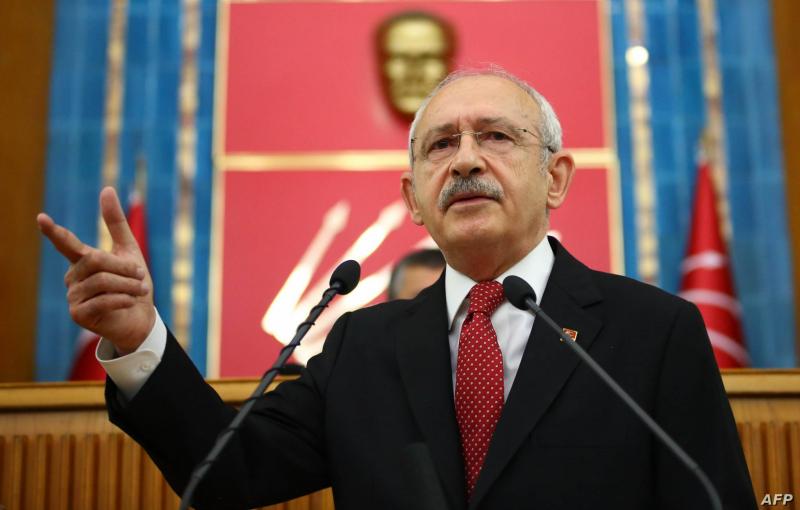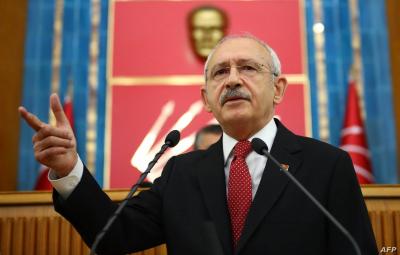Turkish opposition leader Kemal Kılıçdaroğlu has been a rival of President Recep Tayyip Erdoğan throughout his career. He believes the time has come to set the country on a new path and erase much of the legacy of the man who has dominated politics for two decades.
He has chosen a coalition of six opposition parties to compete against Erdoğan in today's elections, which are considered the most important in the country's modern history.
Opinion polls generally show that Kılıçdaroğlu is ahead of Erdoğan and may win in a second round of voting after a comprehensive campaign promising solutions to the cost-of-living crisis that has eroded the president’s popularity in recent years.
Kılıçdaroğlu has pledged to return to traditional economic policies, a parliamentary system, and an independent judiciary, which critics say Erdoğan has used to suppress opposition, as well as to establish smoother relations with the West.
The opposition's plan aims to ease inflation, which hit 85% last year, although it is expected to cause disruptions in the financial markets and potentially continue a series of currency collapses.
Thus, Kılıçdaroğlu understands that "people are struggling to make ends meet. I know the cost of living and the despair of the youth; it is time for change, and there needs to be a new spirit and understanding."
Critics argue that Kılıçdaroğlu, who was mocked by Erdoğan after repeated election defeats as head of the Republican People's Party, "lacks his opponent's ability to rally crowds and does not offer a clear vision for a post-Erdoğan era."
Even if he wins, Kılıçdaroğlu faces the challenge of maintaining the unity of an opposition coalition that includes nationalists, Islamists, secularists, and liberals. His selection as a candidate came after a 72-hour dispute during which Meral Akşener, the leader of the IYI Party, the second-largest party in the country, withdrew.
Polls indicate that the competition will be fierce in the presidential and parliamentary elections, which will not only choose the country's president but also determine the role Ankara may play in easing conflicts in Ukraine and the Middle East.
Many are wondering whether Kılıçdaroğlu can defeat Erdoğan, the longest-serving president in the country, whose personality and the glamour of his campaigns have led to over 10 electoral victories.
However, analysts say Erdoğan is closer to defeat now than ever, despite his influence over the media and courts and his government's record spending on social aid before the elections.
Kılıçdaroğlu has risen to prominence as an anti-corruption figure, appearing on television waving documents that led to resignations of high-level officials. A year after losing a race for the Istanbul mayoralty, he was elected unopposed as the party leader in 2010.
His election as head of the Republican People's Party raised hopes for a new beginning for the party, but support has not surpassed 25% since then. The Justice and Development Party received 43% in the most recent parliamentary elections held in 2018.
Critics claim he "has not succeeded in making the Republican People's Party more flexible, but he ultimately imposed himself as a presidential candidate even though others performed better in opinion polls against Erdoğan."
Thousands rallied in support of him in the Kurdish-majority city of Van after he gained the backing of the large pro-Kurdish Peoples' Democratic Party, although this party is not a member of the main opposition coalition.




